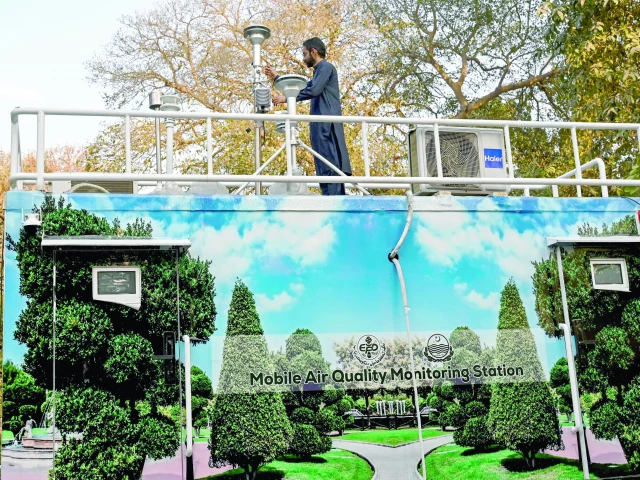Pakistan emerges from record smog season
Lahore's 14 million residents spent six months breathing concentrations of PM2.5

Tens of millions of Pakistanis spent at least four months breathing toxic air pollution 20 times above safe levels, in the worst winter smog season for several years, according to data analysed by AFP.
Pakistan regularly ranks among the world's most polluted countries, with Lahore often the most polluted megacity between November and February.
AFP's analysis of data recorded since 2018 by independent air monitoring project AQICN shows the 2024-2025 winter smog season started a month earlier in October and persisted at higher levels, including in cities normally less affected by pollution.
Lahore's 14 million residents spent six months breathing concentrations of PM2.5 -- tiny particles that can penetrate the lungs and bloodstream -- at levels 20 times or more than recommended by the World Health Organization.
Those in Karachi, Pakistan's biggest city, and the capital Islamabad were subjected to 120 days of the same choking pollution levels.
"The smog is just getting worse every year," admitted a factory owner in Lahore, who wished to remain anonymous after openly criticising government policies.
"If I was rich, my first decision would be to leave Pakistan for Dubai, to protect my children and raise them in a smog-free environment," he told AFP.
Experts say the pollution is primarily caused by factory and traffic emissions. It worsens in winter as farmers burn crop stubble and cooler temperatures and slow-moving winds trap the deadly pollutants.
This year, winter rains that typically bring relief did not arrive until late February, as climate change renders Pakistan's weather patterns increasingly unpredictable.
The smog was so thick it could be seen from space and prompted authorities to close schools serving millions of students across the largest province Punjab, including its capital Lahore.
Young climate activist Risha Rashid said Islamabad is fast becoming "another Lahore" and has launched legal action against the government.
"It's really suffocating," the 21-year-old, who has asthma, told AFP. "I cannot go out, even if I have exams. It's not just affecting our physical health but our mental health as well."
An Ipsos poll in November found four out of five Pakistanis said they were affected by the smog.
It can cause sore throats, stinging eyes and respiratory illnesses, while prolonged exposure can trigger strokes, heart disease and lung cancer.
Its effects are worse for children, who breathe more rapidly and have weaker immune systems.



1724319076-0/Untitled-design-(5)1724319076-0-208x130.webp)















COMMENTS
Comments are moderated and generally will be posted if they are on-topic and not abusive.
For more information, please see our Comments FAQ